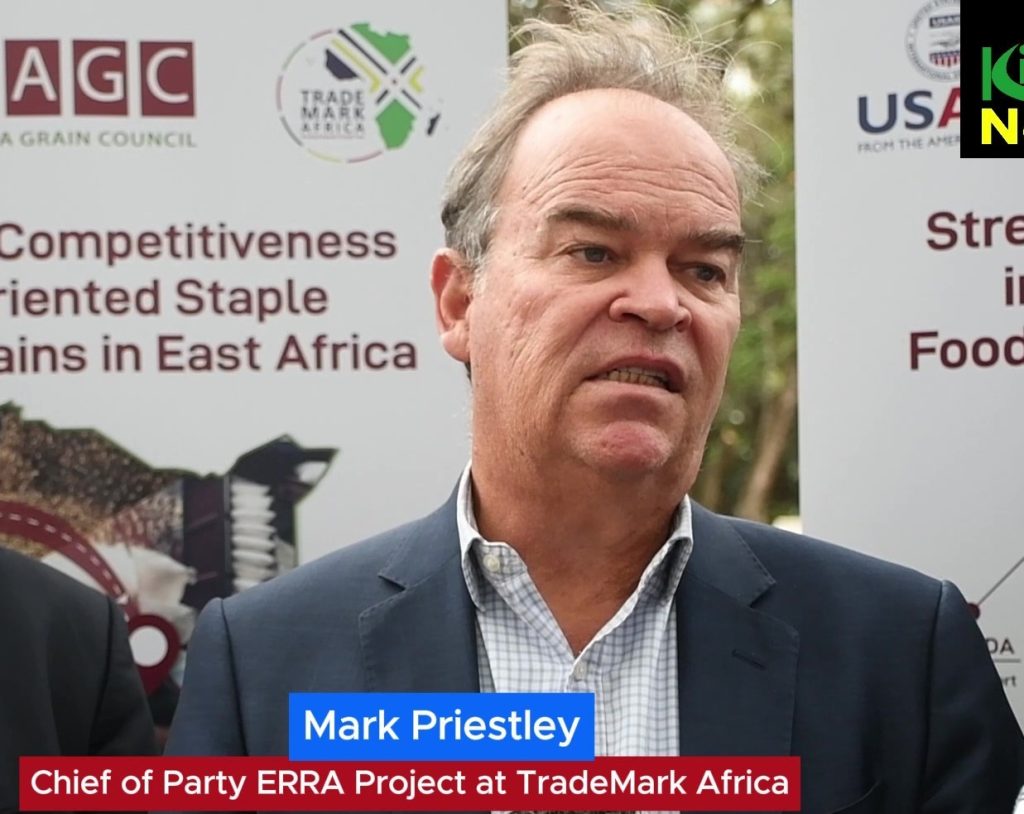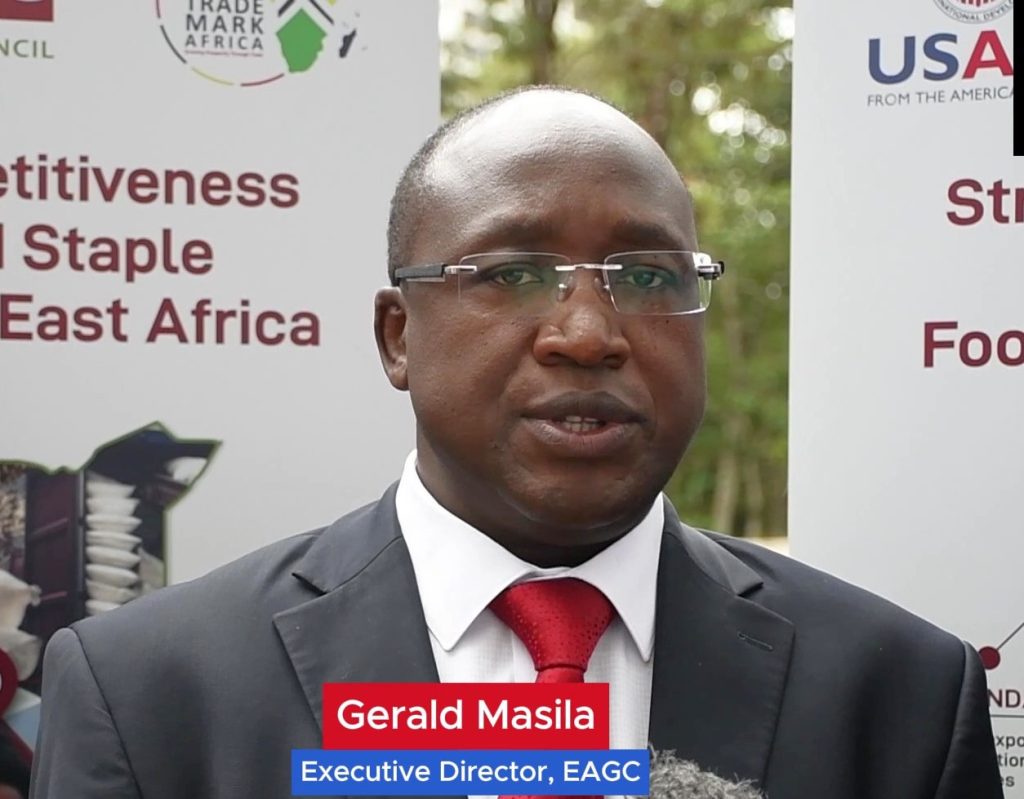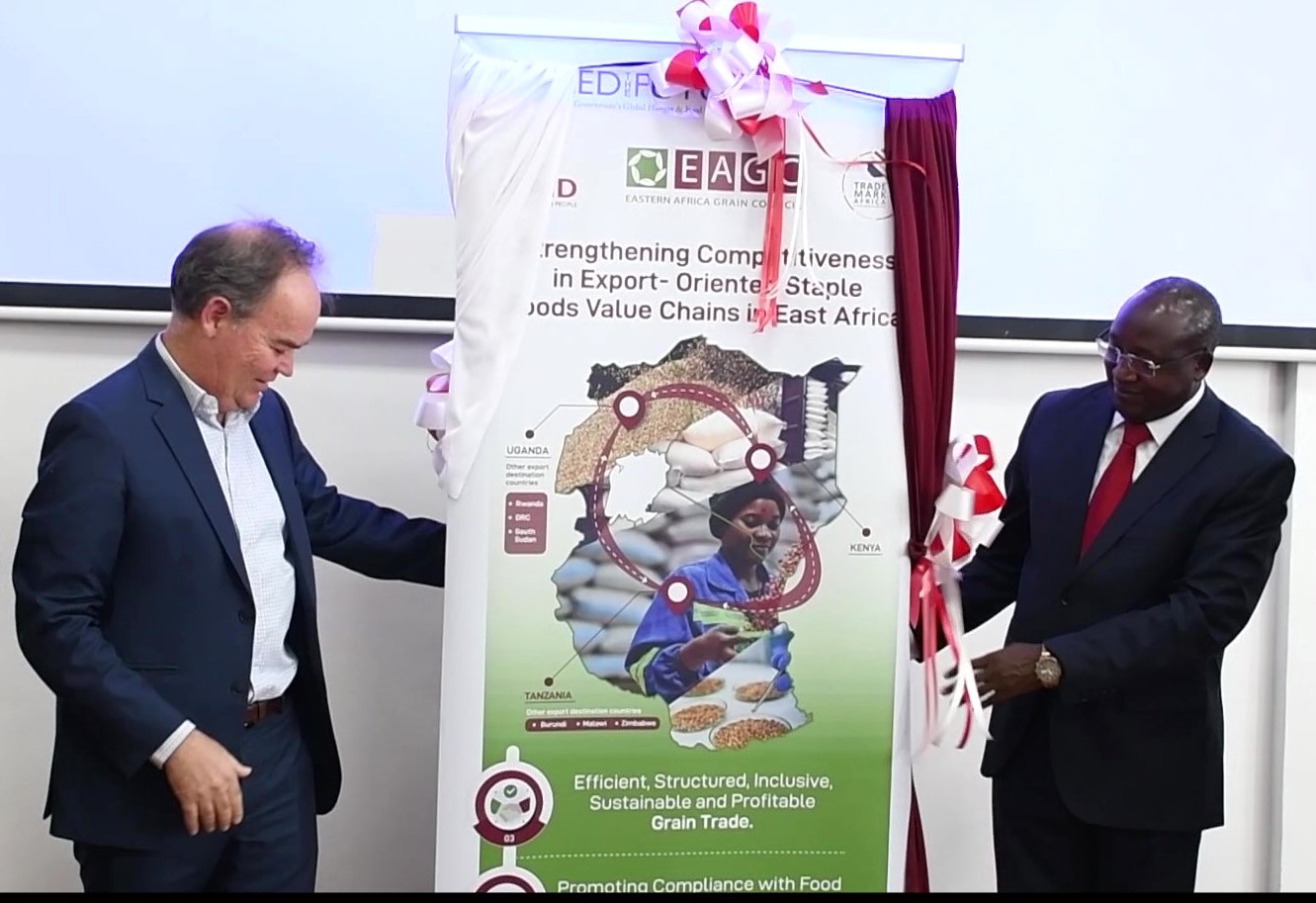By Kimuri Mwangi
A three-year project aimed at Strengthening Competitiveness in Export-Oriented Staple Food Value Chains in East Africa has been launched. Funded under the USAID Economic Recovery and Resilience Activities (ERRA) program, the project will focus on regional trade through key trade corridors in Uganda, Tanzania, and Kenya.
The project will be implemented by Trademark Africa (TMA) together with The Eastern Africa Grain Council (EAGC).
During the launch, the grain value chain stakeholders were informed that the launch was very timely given that East Africa’s food commodities trade has faced significant instability and decline due to challenges such as low aggregation, informal trading, and limited farmer integration into formal trade resulting in high transactional costs. Inadequate storage and quality management infrastructure, coupled with a lack of post-harvest handling skills and knowledge, further exacerbate the situation. Additionally, there is limited information on export market opportunities, inadequate access to quality management services, and a scarcity of finance for trade and infrastructure development.
The project aims to achieve several objectives among them to strengthen farmer-operated grain business hubs (G-Hubs), enabling them to utilize technology to enhance grain production, quality, and trade. Additionally, the project aims to develop enterprise-level capacities and institutional mechanisms to scale up Sanitary and Phytosanitary (SPS) standards and quality compliance, thereby increasing export-oriented grain trade. Furthermore, it aims to establish and enhance an information hub to inform regional food balance sheets and shape national and regional food security and trade policies, fostering an enabling regulatory environment for trade.

In his keynote address, Mark Priestley, Chief of Party for the ERRA project at Trademark Africa, emphasized the strategic collaboration with EAGC and USAID, highlighting its potential to enhance grain exports within the region through strategies such as Grain Business Hubs (G-Hubs), operated by farmers, who will utilize technology to enhance grain quality and stimulate trade.

“We hope to create greater food security and resilience and we’ll be working with all value chain actors. So, in the first mile, we’ll be working with farmers to help them organize themselves into grain hubs. Then we’ll be working with SMEs to help them access markets, particularly to millers to increase the trade across borders and then thirdly we’ll be working to improve the business environment. Maybe a lot of people in the region know but one of the big challenges is aflatoxin and so how can we make trade in grains and staples more safe and working both with the government and the private sector to help them comply with the standards that are required so that people can consume safe food is the essence of this project,” said Priestley.
Gerald Masila, the Executive Director of EAGC, voiced his excitement with the launch of the project, emphasizing its alignment with EAGC’s mission to advocate for an enabling environment and promote structured grain trade for the optimum benefits of its stakeholders. He underscored the expected benefits of the project to the sector, such as improved production, access to agricultural financing, capacity enhancement, mentorship in SPS and quality compliance, trade linkages and an enabling environment for trade.
“The project that we are launching is looking at addressing all the various issues looking at making sure that from farm level we have good production that is also compliant to quality. Then we’re looking at the supply chain, at the transport logistics, cross border trade clearing or minimizing those costs because when those costs build up at the end of the day it is you and me as consumers who have to pay for all the inefficiencies and the problems that come along the value chain. Through this project, we will be addressing policy issues that are affecting the grain trade. We will be looking at financing and access to finance, for production, trade finance because that’s important including even a payments and settlement process across the region,” opined Masila.

Key intervention areas of the project will focus on the commercialization of smallholder farmers’ activities, and SME businesses, and improving the grain trade policy environment for staple foods export. The project will enhance export-oriented market access for Tanzania and Uganda with the Kenyan market, promoting greater regional integration and trade through empowering smallholder farmers by improving their access to relevant Business Development Services (BDS), thereby enhancing production and trade efficiency. Furthermore, it will strengthen the capacity of firms along the grains export value chain in Uganda and Tanzania, enabling them to capitalize on export opportunities and contribute to economic growth.



